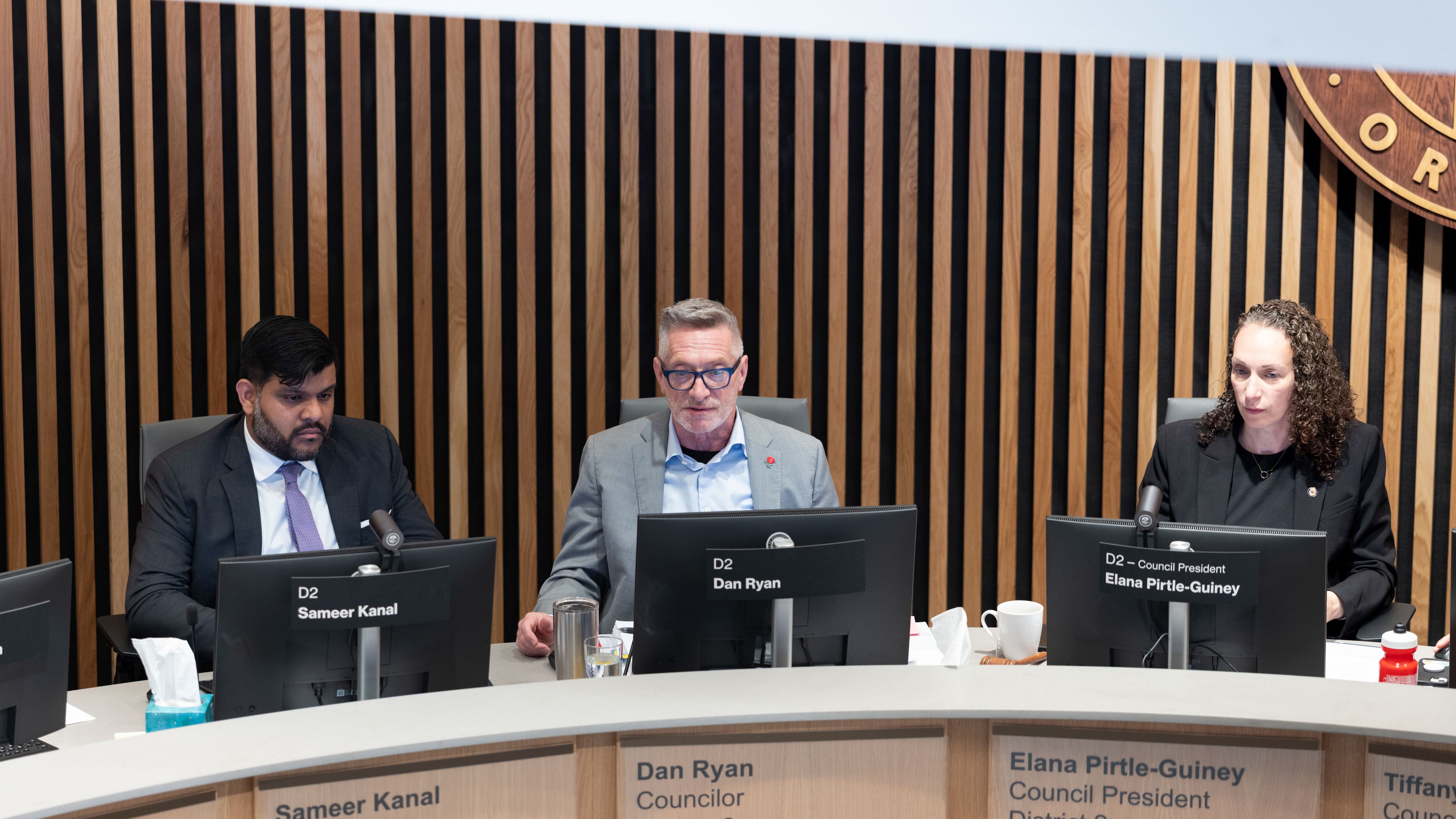The Portland City Council last week could not agree on yet another basic procedural question: what items should and should not go on the consent agenda before the council.
The most recent procedural debate is just the latest in what’s become a long string of debates around council procedures, the role and place for public testimony, and how a policy moves through a committee. Some of those debates have lasted for hours on the dais but have resulted in no conclusion from the council—a council that has in recent months seen strained relationships between members of its progressive caucus and the more centrist bloc.
At issue last week during a council meeting was whether nominees for various city advisory bodies and committees should be placed on the consent agenda if unanimously approved by a policy subcommittee.
The consent agenda is typically reserved for non-controversial or routine items that are expected to have unanimous support. The consent agenda aims to help speed meetings along and reserve longer periods of discussion and debate for meatier, more controversial items.
Councilors during the debate last week fell along familiar fault lines: some members of the progressive caucus, called Peacock, took issue with placing nominations on the consent agenda. Centrist members of the council said that doing so would slow down the council’s work.
“There are three members of Peacock on the Finance Committee, and if you don’t trust me, you’ve got part of your caucus, as well,” Councilor Eric Zimmerman said to Councilor Sameer Kanal. (According to data kept by Council President Elana Pirtle-Guiney this spring, Kanal and Zimmerman spoke the most out of the entire council. They’ve become frequent sparring partners from across the dais.)
Zimmerman added: “I don’t know what future we have if this tiny little thing has to continuously get pulled off consent.”
Kanal took issue with Zimmerman’s comments, retorting back: “The comment that this is the tiniest thing is particularly concerning. These boards are much more important than they’re often treated as.”
To that, a visibly frustrated Councilor Olivia Clark said, “What this conversation says to me is that we really need some marriage counseling...[we need] to try and build some trust around here.”
Clark has in the past encouraged the council to squash procedural disagreements in order to tackle meatier things. “I think we all ran for office because we wanted to make this system work, and we wanted to all pull together, and I just don’t see that happening right now,” Clark said.
Councilor Candace Avalos bit back, saying the problem at hand wasn’t trust or lack thereof.
“I often hear this debate being shrouded in this concept about we have to trust each other. My job isn’t about trusting all of you,” Avalos said. “My job is to speak for my constituents and to weigh the decisions in front of me.”

